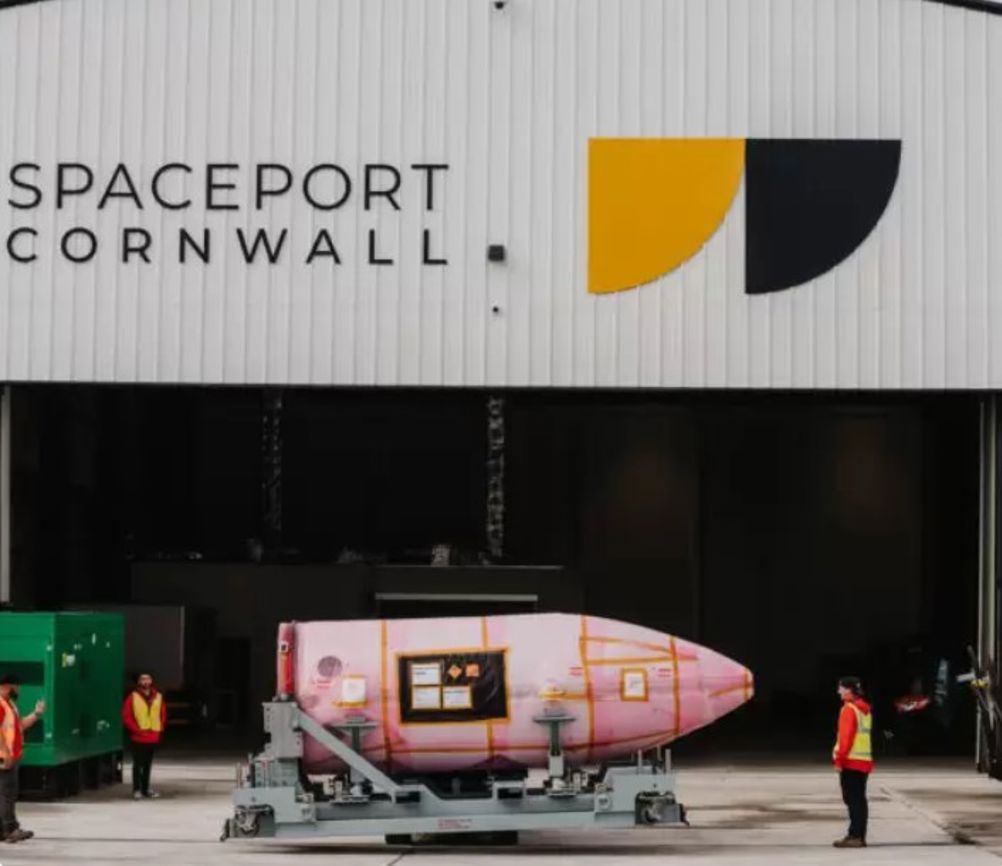Despite the closure of Virgin Orbit, South West England’s aerospace and space engineering sector is continuing to innovate and scale-up. But skills gaps need to be addressed to fulfil its potential.
The South West is home to over 250 space-related organisations, making it the third largest UK region for the sector. Its income has also grown by an impressive 34% since 2018/19.
The region’s aerospace heritage has laid the foundations for this growth. Bristol is home to Airbus and Rolls-Royce, with GKN Aerospace, BAE Systems, Leonardo Group, and Boeing joining them in being strategically involved in the South West. These companies are spearheading research and development efforts, particularly in emerging fields like hydrogen aviation, showcased by Airbus’ ZEROe hydrogen-powered aircraft and GKN Aerospace’s £54.4 million H2GEAR hydrogen propulsion project. Other innovators, like Reaction Engines, have also expand their presence in the area.

Education and research plays a role in supporting this rapidly emerging sector. South West universities increasingly tailor their programs to meet the evolving demands of the space engineering industry. The University of the West of England excels in areas such as robotics, materials, manufacturing, space propulsion and renewable energy applications for space. While the University of Bristol’s multidisciplinary community of over 100 space researchers contributes to various projects including Mars Lander initiatives and climate modelling using satellite data.
The region has also secured investment in developmental projects focused on space such as Cornwall Newquay Airport’s transformation into one of the UK’s inaugural horizontal launch sites.
Crucial to these advancements is the Space West consortium. This alliance strives to spur growth and foster innovation within the regional and national space sectors. Encompassing a broad partnership network including the National Composites Centre, the West of England Combined Authority, and universities like Bath, Bristol, and the West of England, the consortium is a powerhouse of support for both multinational space enterprises and dynamic SMEs. In 2020 the West of England was declared one of the UK Space Agency’s seven new Space Hubs. Subsequent funding in February 2023 has further empowered Space West to fine-tune its strategies and kickstart an expansive Space Cluster Development Programme.
The Space Sector Skills Survey 2023, conducted after Virgin Orbit filed for bankruptcy in early April, shows the UK sector is still feeling optimistic about future growth. Sixty-two percent of the organisations surveyed had recruited in the past 12 months, only slightly down from 70% in 2020.
The survey did, however, highlight crucial skills challenges to be tackled:
Skills Gaps: 52% of organisations had skills gaps in their current workforce, which is almost unchanged from 51% in 2020.
Areas of Skill Gaps: There is a significant gap in software and data skills, with 72% of those reporting a skills gap identifying this area. Skills in AI and machine learning (41%) and data analysis and modelling (36%) are particularly needed.
Causes of Skills Gaps: These gaps are attributed to difficulties in hiring new staff (48%), new staff not having the right skills (45%), and existing staff leaving (34%).
Impact of Skills Gaps: About 97% of organisations with skills gaps reported an impact on performance and growth, with 71% describing the impacts as major or moderate.
Closing these skills gaps is being taken seriously in the UK, with the Space Skills Alliance producing a problem map to help understand the causes of these challenges.
Existing data on occupations and skills could help employers and the sector source skills, plan ahead, and shape education to better meet their needs. But only if that data is organised in a way which makes it easy to access and use.
Enginuity has created a “common language” for engineering and manufacturing occupation and skills data so it can be effectively organised, compared, and searched.
This allows Enginuity to create new tools, such its Skills Comparator and Role Explorer, to support engineering and manufacturing employers in discovering new sources of skills or upskilling and reskilling opportunities.
Data-driven insights on skills that are increasingly in demand, combined with sector expertise, can also help businesses, sectors and government plan ahead.
Many of the skills gaps the South West aerospace and space engineering industry faces are shared across engineering and manufacturing sectors. As a Sector Connector, Enginuity brings sectors together through initiatives like the National Manufacturing Skills Taskforce. By collaborating more closely we can ensure that employers have the right skills and the right time to seize the growth opportunities created by new technology, whether that is within established sectors or rapidly emerging ones like aerospace and space engineering.
This content was produced in partnership with Enginuity, a charity dedicated to helping engineering and manufacturing employers find new ways to close the skills gaps. Enginuity combines a unique approach to sector data with a deep understanding of employer skills challenges, to help ensure our sector has a highly skilled, globally competitive workforce now and in the future.











McMurtry Spéirling defies gravity using fan downforce
Ground effect fans were banned from competitive motorsport from the end of the 1978 season following the introduction of Gordon Murray's Brabham...